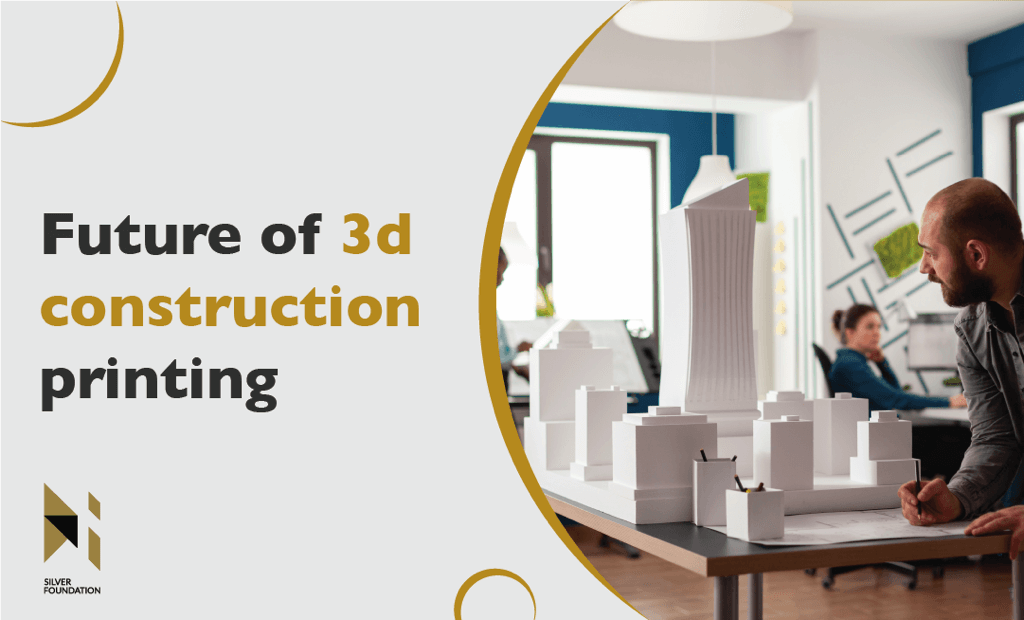Civil works refer to the design, construction, and maintenance of infrastructure such as roads, bridges, drainage systems, and public utilities that support everyday life. These foundational elements are essential for urban development and economic growth. Understanding building works is therefore crucial before starting any project, as it ensures compliance with regulations, safety standards, and sustainability goals. Silver Foundation explores the fundamentals of structural works, their scope, and their role in Saudi Arabia’s transformation.
All major development projects in Saudi Arabia are based on civil works, which form the backbone of the economy and social development of the country. Structural works unite communities together through roads, bridges and water systems, as well as smart cities that lead to advancement. They are also compatible with the United Nations Sustainable Development Goals (SDGs) because they advance the resilient infrastructure and urbanization.
Such projects are part of Saudi Vision 2030 to diversify the economy, influx investment, and bring competitiveness in the country. All such building works make sure that each project is modern and connected through innovation, quality, and sustainability.
Stages of Civil Works in a Construction Project
Planning and Design
This phase includes site survey, feasibility study and geotechnical testing to get familiar with the terrain and conditions. The engineers come up with elaborate blueprints and engineering designs that provide direction to the project. The correct planning reduces the risk, ensures adherence to regulations, and cost-effective and sustainable construction outcomes.
Approvals and Permits
The developers should also receive the authorizations of the Saudi government authorities, such as the Ministry of Municipal and Rural Affairs and Housing (MOMRAH), before construction starts. The process will guarantee that the designs are of national safety, zoning, and environmental quality.
Site Preparation
Site preparation involves cutting vegetation, excavation of the earth, grading and levelling of the site. The tests of soil and stability are essential because they guarantee a strong basis and building strength. When the site is well prepared, always check for the settlement or drainage problems that affect the infrastructure in future.
Construction and Implementation
This stage includes laying of foundations, installing underground utilities and building roads, drainage, among other necessary elements. Engineers, contractors, and labourers all work together to ensure that the work is of high quality and is carried out according to the specifications of the design. The constant check and quality control is a way of ensuring that the construction is safe and meets the performance standards.
Inspection and Handover
Compliance with approved plans and standards occurs after the building is completed by ensuring that strict inspections and safety checks are done. The systems will undergo testing, and any defects will be corrected before delivery. The project is subsequently handed over as a complete and fully functional infrastructure that is ready to use.
Regulations and Standards Governing Civil Works
In Saudi Arabia, building works are regulated by the Saudi Building Code (SBC), which establishes standards in the design, use of materials and construction practice. Local authorities also adopt specific regulations regarding zoning, safety and environment protection.
Conformance guarantees the integrity of structures, the safety of workers and eco-friendly practices. Not meeting such criteria may lead to fines, time lags or loss of permits. A lot of projects also incorporate international standards like ISO, ASTM and British Standards (BS) to be compatible and of quality internationally.
Compliance helps in increasing credibility, mitigation risks, and sustainable development. It should be in accordance with the goals of Saudi Vision 2030.
Innovations and Trends in Saudi Arabia’s Civil Works
The building industry is now adopting modern technologies and sustainable developments in a bid to improve efficiency and quality. Project planning and surveillance are being transformed by the current survey tools such as LIDAR, drones, and GIS.
Increased focus on sustainable materials and green building practices is becoming the focus to reduce the environmental footprint. Prefabrication and modular construction speed up the project delivery but reduce wastage. Coordination and data-driven decision-making can be enhanced using smart infrastructure and digital project management tools.
Moreover, automation and artificial intelligence are changing the process of design, construction, and maintenance. It brings more accurate, safe, and cost-effective results in accordance with the objectives of Vision 2030 of the Kingdom.
Choosing the Right Civil Works Contractor
The choice of an experienced contractor is essential to the success of the project. Search for licensing, certifications, local experience, and a good project portfolio. Capable human resources and compliance with safety and quality standards are requisite.
Before employment, inquire about the experience of the contractor handling similar projects, their methods of dealing with schedules and budgets, and how they overcome unforeseen site problems.
Joining forces with a local contractor would be highly beneficial. It can help you to gain knowledge of the Saudi rules, climate, and language and get access to domestic suppliers and workforce. A well-known contractor means a hassle-free implementation, adherence and completion of the project on time.
Some challenges to face
Harsh Climatic Conditions
Extreme heat, sandstorms, and changes in humidity may deteriorate materials and interfere with working plans. The application of heat-resistant materials modernized methods of building and planning will reduce these environmental challenges and provide safety and durability.
Soil Quality and Desert Terrain
Geotechnical analysis and foundation reinforcement are crucial in the case of unstable or sandy soil conditions. The application of ground improvement techniques and the application of special equipment will provide stability for structures. It also averts settlement or erosion of the desert landscapes.
Logistical Challenges
It may not be easy to coordinate transportation and the supply chain when the project location is distant or the development is massive. Planning, having strong and good logistics partners and utilization of local resources can contribute to schedule adherence and reduces operational delays.
Regulatory Delays or Import Restrictions
A delay in approvals or material importation may affect time and costs. To overcome bureaucracy and keep the project on track, it can be recommended to engage experienced consultants, do early documentation and source materials locally.
Future of Civil Works in Saudi Arabia Beyond 2025
The structural industry is going through a radical phase due to Vision 2030 and the emergence of mega projects. NEOM, The Line, and Qiddiya. Infrastructure development is changing the future of sustainability, digital transformation, and smart city planning.
The government is promoting the idea of government-private investment by using the concept of public-private partnerships. This will encourage the idea of innovation in green building materials and construction technology.
In the coming ten years, building work will be oriented towards the inclusion of AI, BIM, and IoT to build smarter and more efficient buildings. With the Kingdom diversifying its economy, structural works are bound to remain a key participant in the development of resilient, sustainable and world-class infrastructure.
Conclusion
To recap it all, civil works are the foundation of any successful infrastructure and construction project that is safe, efficient and of long-term service. Collaboration with established contractors will ensure quality deliverables and long-term results. Silver Foundation is a leader in providing top-notch infrastructure services to excel in your next project.
Frequently Asked Questions
1. What civil works are included in Saudi Arabia?
Earthworks, roads, drainage, utilities, and structures comprise structural works that are important in the development of infrastructure and buildings in Saudi Arabia.
2. What is the importance of civil works in construction projects?
They offer solid groundwork, robust and stable infrastructure, and secure surroundings. These are the main pillars of any successful construction project.
3. How to choose the right contractor in KSA?
Licenses of checks, experience, safety standards, project portfolio and adherence to the Saudi Building Code and Vision 2030 objectives.
4. How does civil works in Saudi Arabia work?
Design and implementation in projects must comply with the Saudi Building Code (SBC), environmental standards, and standards by the municipal authority.




